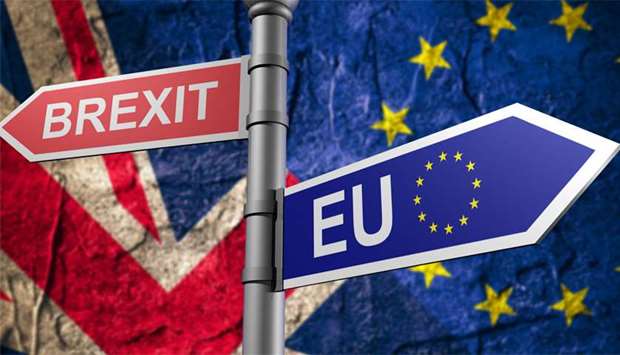Britain's deal for withdrawing from the European Union has been ‘agreed in full,’ Prime Minister Theresa May said on Monday, amid pressure from eurosceptics for last-minute changes.
‘The withdrawal agreement has been agreed in full, subject of course to final agreement being reached on the future framework [for Britain's post-Brexit relations with the EU],’ May said in a speech to business leaders.
May was speaking after weekend reports that five members of her Conservative cabinet still wanted her to negotiate changes to the withdrawal deal, and that an agreed 21-month transition after Britain leaves the EU in March could be extended by up to two years.
She said the deal ‘fulfils the wishes of the British people as expressed in the 2016 [Brexit] referendum’ and would give them control over the immigration of EU citizens.
‘It will no longer be the case that EU nationals, regardless of the skills or experience they have to offer, can jump the queue ahead of engineers from Sydney or software developers from Delhi,’ May told an annual conference of the Confederation of British Industry (CBI), which represents some 190,000 businesses.
New immigration rules for EU citizens must ‘command the confidence of the public by putting them in control of who comes here,’ she added.
May said the withdrawal agreement and a political declaration outlining the principles of the future relationship ‘represent a decisive breakthrough, but they are not the final deal.’ ‘We now have an intense week of negotiations ahead of us in the run-up to the special European Council on Sunday,’ she said, adding that she expected those talks to focus on the future relationship.
‘I am confident that we can strike a deal at the council that I can take back to the House of Commons,’ May said, referring to parliament's main elected house.
Conservative eurosceptics and Northern Ireland's Democratic Unionist Party, whose 10 lawmakers prop up May's minority government, have demanded that she change her Brexit plan or face them voting against it.
May suggested on Friday that lawmakers should vote individually, rather than with their parties, amid speculation that she will try to rely on opposition Labour lawmakers to win a vote on the deal.
In her speech on Monday, May said the final stage of Brexit ‘was always going to be the toughest.’ ‘But we have in view a deal that will work for the UK,’ she said ‘And let no one be in any doubt: I am determined to deliver it.’ Conservative eurosceptics are also attempting to force a confidence vote in her leadership.
About 25 Conservatives have announced that they have written to the party's parliamentary committee to request a no-confidence vote in the prime minister.
The committee must organize a vote if at least 48 of the 315 Conservative lawmakers request one.
May would be forced out if she lost a vote by a simple majority, but most observers believe she would be more likely to win.
She warned the rebels on Sunday that a change of leadership would not help negotiations with Brussels.

